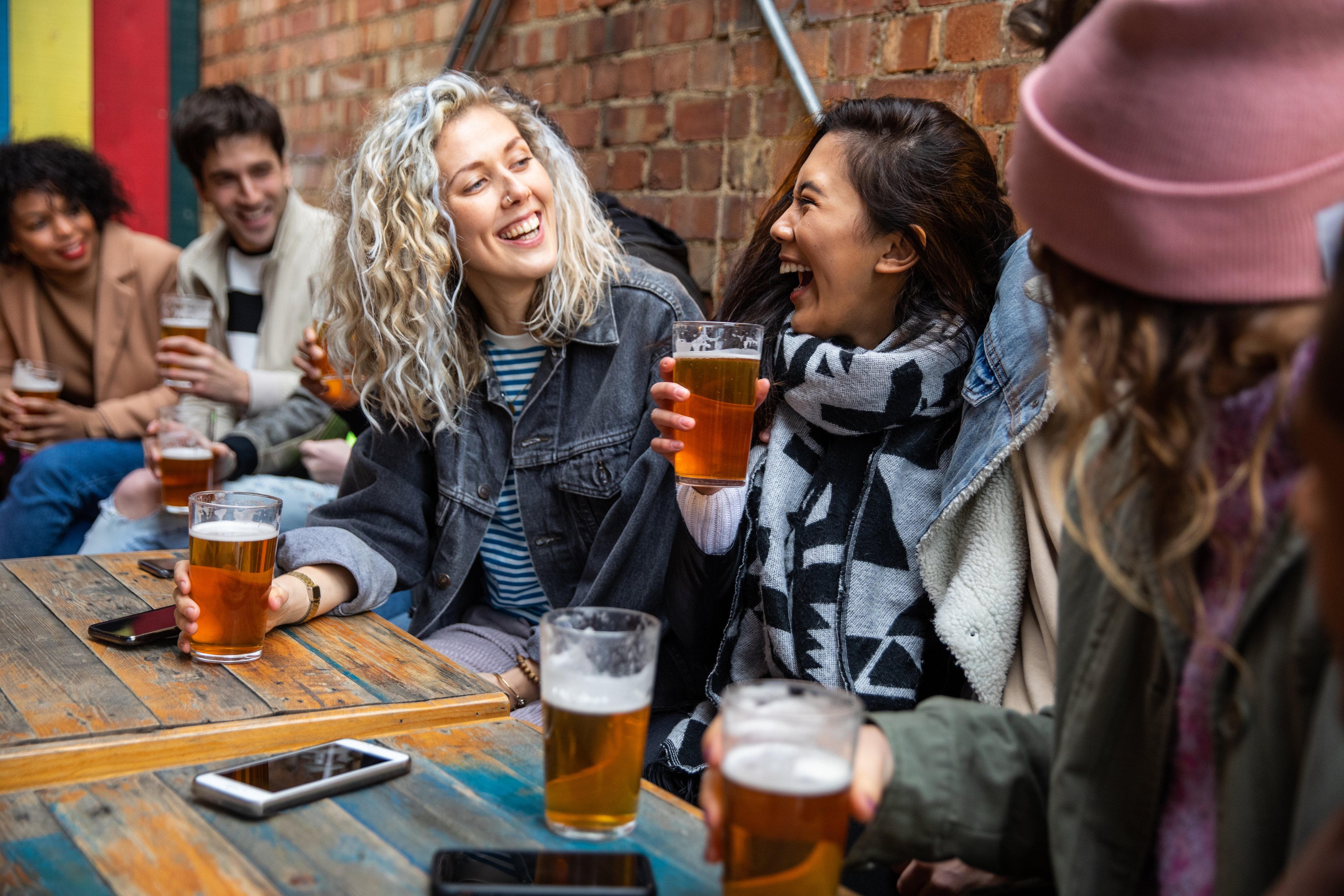Between the backdrop of coronavirus-related shutdowns and the stock's subpar performance of late, it would be easy to conclude that spirits company Diageo (DEO +0.81%) is in above-average trouble. And to be fair, much of the market's concern regarding the organization is merited. In April, Diageo withdrew its full-year guidance, citing uncertainties about when life might return to normal. Bars and restaurants remain relatively empty.
Not everything is quite as it appears with just a superficial look, though. While it and peers like Brown-Forman (BF.B +0.32%) (BF.A +0.40%) and Constellation Brands (STZ +0.47%) clearly have some challenging but attainable recovery goals ahead, Diageo may be better positioned for a rebound than its competition.

Image source: Getty Images.
Closed bars aren't the end of the world
You may know the company better than you think. Diageo is the name behind spirits brands like Johnnie Walker, Smirnoff, and Captain Morgan. It also owns Guinness, along with a few other familiar franchises. It's a premium player, but its goods are still priced accessibly for most consumers. And those consumers stocked up on and consumed booze at a brisk rate while stuck at home for the past several month when there wasn't much else to do.
Investors are proverbially flying blind in terms of figuring out how Diageo has fared lately, however. Its last fiscal report was posted in January, covering the last six months of 2019 when the coronavirus outbreak wasn't a worry. We won't get the next update until Aug. 4, which will cover a six-month stretch largely crimped by COVID-19. Investors understandably predict the results won't be great. While the S&P 500 has pared back much of its losses since March and is now flat year to date, Diageo shares are down 15% for the same period and haven't budged since May.
That report may not be quite as rough as expected for one big reason though: Only about 20% of the company's North American revenue actually comes from on-trade channels, the restaurants and bars most affected by widespread lockdown measures. The rest is off-trade business, which hasn't been entirely disrupted. In fact, Nielsen recently reported that between the beginning of coronavirus lockdowns in the United States and the week ending July 4, off-trade sales of spirits were up nearly 34% year over year.
Better diversified
While consumers' strong demand for off-premise consumption is at an extreme end of the spectrum for the booze industry, the revenue mix isn't especially unique to Diageo. Brown-Forman says about 20% of its business comes from on-trade venues as well. Despite the company's focus on beer, Constellation CEO Bill Newlands revealed in an interview earlier this year that more than 80% of its sales are similarly conducted through off-premise channels.
Even so, Diageo has something of a geographic edge on its rivals as it is highly diversified, in terms of sales as well as production. North America accounted for 35% of last year's top line, while half of Brown-Forman's sales come from the United States alone. The vast majority of Constellation's wine and spirits shipments are made to U.S. customers. Likewise, most of Constellation's breweries, wineries, and distilleries are located in North America. Brown-Forman's production sites are slightly more diversified but not overwhelmingly so. Outside of the United States, the bulk of its properties are in Scotland. Diageo, however, boasts 150 production sites all over the world, only nine of which are found in North America (and those nine are spread out across the country). It has granted production licenses to 15 operators in Africa, and it even has several production operations in China, India, and Australia.
It's difficult to quantify the benefits of this sort of diversification, but with COVID-19 not yet contained, production and sales options that don't have to clear tough transportation hurdles could end up being a very big advantage.
Connecting with consumers online
Indeed, Diageo may be even more prepared to serve customers stuck at home all over the world in the near future than it was just in March. Last month, Gregorio Gutierrez -- the spirits company's managing director for Brazil, Paraguay, and Uruguay -- told Reuters that the company ramped up its e-commerce capacity to cater specifically to consumers in Brazil who were still unable to return to bars and restaurants.
The effect of that effort is not yet clear, but in a market where up to half of the company's sales are driven by on-premise or on-trade purchases, even offsetting a small piece of that lost bar and restaurant business is beneficial.
Diageo has seemingly not done as much to beef up its e-commerce capacity in other markets -- selling alcohol online is something of a regulatory hurdle in most locales if not outright prohibited. To the extent it's able to do so, though, the company appears to be doing what it can to offer direct-to-consumer sales.
Stay sober, but drink up
Don't misread the message. The world's coronavirus abatement measures have undoubtedly hurt the booze industry, and Diageo hasn't been wholly immune to that disruption. While it's an off-premise powerhouse in the U.S., on-premise sales still account for about half of its top line in Europe as well as other regions.
The stock's poor performance since February, however, appears to price in a worst-case scenario that doesn't overwhelmingly apply to this particular company. Investors have also given Diageo little credit for enhancing its e-commerce capabilities in Brazil, which may reflect similar measures taken in other parts of the world that weren't as well touted.

Data source: Thomson Reuters/Refinitiv. Chart by author.
Analysts are pricing in a near-term sales and earnings lull, but the fact that things may be much better for this spirits name than they seem at first glance should make Diageo a compelling prospect for investors willing to tolerate some near-term risk.









